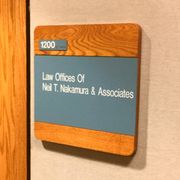3 Ways to Give Your Children a House Without Taxes

Your home is likely your most valuable asset, which is why many parents wish to leave their house to their children after they're gone. Unfortunately, passing down real estate can expose your beneficiaries to tax liabilities that could force them to sell the property. Below are a few common estate planning techniques for giving your home to your children without tax penalties.
A Guide to Tax-Free Methods of Gifting Your House
1. Stay in the Home
If you still own the house when you pass away, the tax basis of the property will be adjusted to the current market value at the time of your death. If your children decide to sell the house one day, they won’t have to pay capital gains tax on the property’s appreciation during your lifetime. As long as the combined value of your assets is below the estate tax exemption amount of $11.7 million, your children may not have to pay any tax at all.
2. Make the Home a Gift

If you give a gift worth more than $15,000 to a single person in a year, you’ll have to file a gift tax form with the IRS. If you and your spouse each give the maximum amount to your child and their spouse, you can bequeath up to $60,000 in value without filing any additional paperwork.
In fact, you may gift up to $11.7 million to any one person over the course of your life without a tax penalty, so you likely won’t have to pay taxes when filing your form. However, if your children choose to sell the home, they may be responsible for paying capital gains taxes on the amount of appreciation since you purchased the house. If you bought it several decades ago, this could be a concern.
3. Establish a Trust
Trusts are separate legal entities that take ownership of your assets. Any property you put into an irrevocable trust, including your house, is no longer part of your estate, so there won’t be any taxes to pay when you pass away. A house held in an irrevocable trust also won’t be counted as an asset for the purpose of Medicaid eligibility, which makes this a popular estate planning vehicle. However, an irrevocable trust can’t be dissolved once it’s established, so speak with an attorney before taking this step.
Estate planning is a complex process, which is why families put their trust in the Law Offices of Neil T Nakamura & Associates. With offices in Honolulu and Aiea, they’ve been providing personalized legal solutions and careful advice to clients across Oahu for over 43 years. Visit their website for more on their estate planning services, follow their Facebook for more legal tips, or call (808) 488-1719 to speak with an attorney in Aiea. To reach their Honolulu office, call (808) 945-7645.
About the Business
Have a question? Ask the experts!
Send your question

